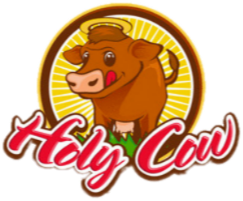What is Regenerative Agriculture?
posted on
October 11, 2023

Whether we like to admit it or not, conventional farming practices can have a negative impact on the environment. From soil degradation to greenhouse gas emissions, modern agriculture has taken a toll on our planet.
In response to these concerns, more farmers are looking towards an approach known as regenerative agriculture. But what exactly does this entail, and is it actually a better approach?
In this blog post, we will dive into what regenerative agriculture is, explore the practices that define it, and highlight the benefits it offers for both the environment and the people who live off the land.
Regenerative Agriculture

Regenerative agriculture, at its core, is an approach to agricultural land management that focuses on restoring and maintaining soil and ecosystem health.
Unlike conventional farming methods that often deplete soil nutrients and rely heavily on synthetic inputs, regenerative agriculture is centered around sustainable, nature-inspired practices that work in harmony with ecosystems. Its core principles aim to foster soil health, biodiversity, and long-term resilience.
Practices & Techniques

There are different approaches to regenerative agriculture depending on what is being grown and where the farm is located. It is important to keep these differences in mind because what is beneficial in one geographical area may do more harm than good in another. Some of these practices include:
No-Till Farming
Traditionally, a farmer would plow or till the soil between crops. However, this can disrupt the soil structure and lead to erosion. Regenerative farmers minimize or eliminate tilling to preserve soil health and structure.
Cover Cropping
Keeping living plants rooted in soil helps retain water and prevent erosion. As such, regenerative farmers plant cover crops—such as legumes or grasses—in their fields between main crops rather than leave the fields empty.
Crop Rotation & Diversity
Repeatedly planting the same crop drains the soil of the same nutrients. This can lead to pests and weeds taking root and future crops lacking the nutrients they need to grow properly. By rotating crops, regenerative farmers can help create diversity and improve soil nutrient balance.
Agroforestry
Agroforestry is the practice of planting trees on farms alongside your crops or livestock to mimic the natural ecosystem of a forest. This not only sequesters carbon but also provides a habitat for wildlife and more diverse forms of nutrients for the soil.
Integration of Livestock
Integrating livestock into farming systems can help recycle nutrients and improve soil fertility through managed grazing. Livestock are able to add nutrients back into the soil through manure and can be integral in preparing the land for the upcoming crop by grazing the cover crops planted earlier in the season.
Benefits

As its name and goal suggest, regenerative agriculture is a transformative approach to farming that offers a multitude of benefits for both the environment and people. It significantly enhances soil health by improving its structure, fertility, and water-holding capacity—which helps increase crop growth and productivity.
Moreover, regenerative farming acts as a powerful ally in the fight against climate change by sequestering carbon dioxide from the atmosphere—a critical step in reducing greenhouse gas emissions.
It also fosters biodiversity both above and below ground, creating healthier ecosystems that support natural pest control and pollination. This not only reduces the need for expensive chemical inputs but also contributes to cleaner water and enhanced resilience to extreme weather events.
Furthermore, consumers benefit from healthier and more nutritious food, and local communities thrive as regenerative agriculture often promotes smaller-scale, local farming—creating jobs and stimulating local economies.
Ultimately, regenerative agriculture is a sustainable and forward-looking approach that not only addresses the pressing environmental challenges posed by conventional farming but also offers a promising future for farmers, consumers, and the planet as a whole.

Holy Cow Farm Fresh is your destination for premium, healthy, grass-fed, and pasture-raised meat. Our local and family-owned livestock farm is dedicated to providing our customers with the highest quality, locally sourced, and sustainably raised meat—all without worrying about fake ingredients, hormones, and chemicals. Visit our website, follow us on Facebook and Instagram, or give us a call to get started on your order!




